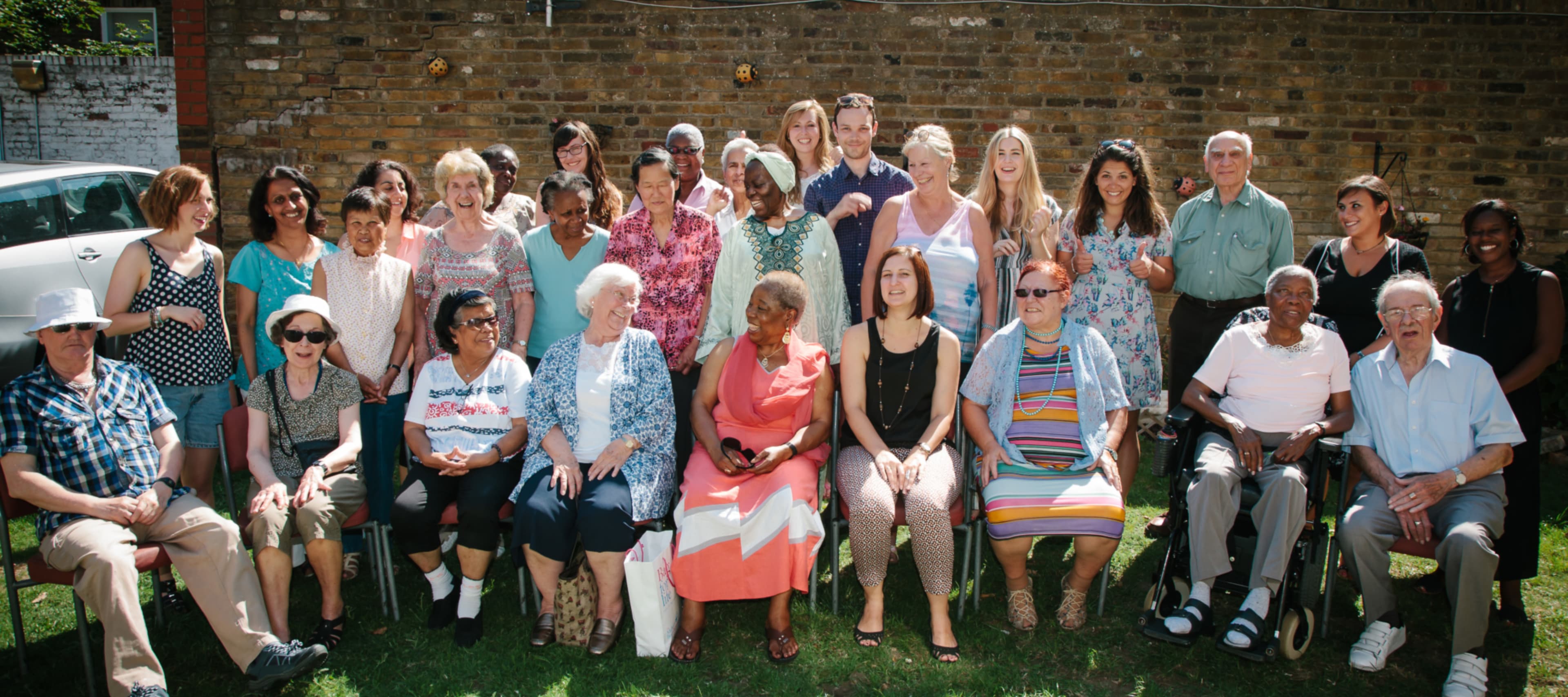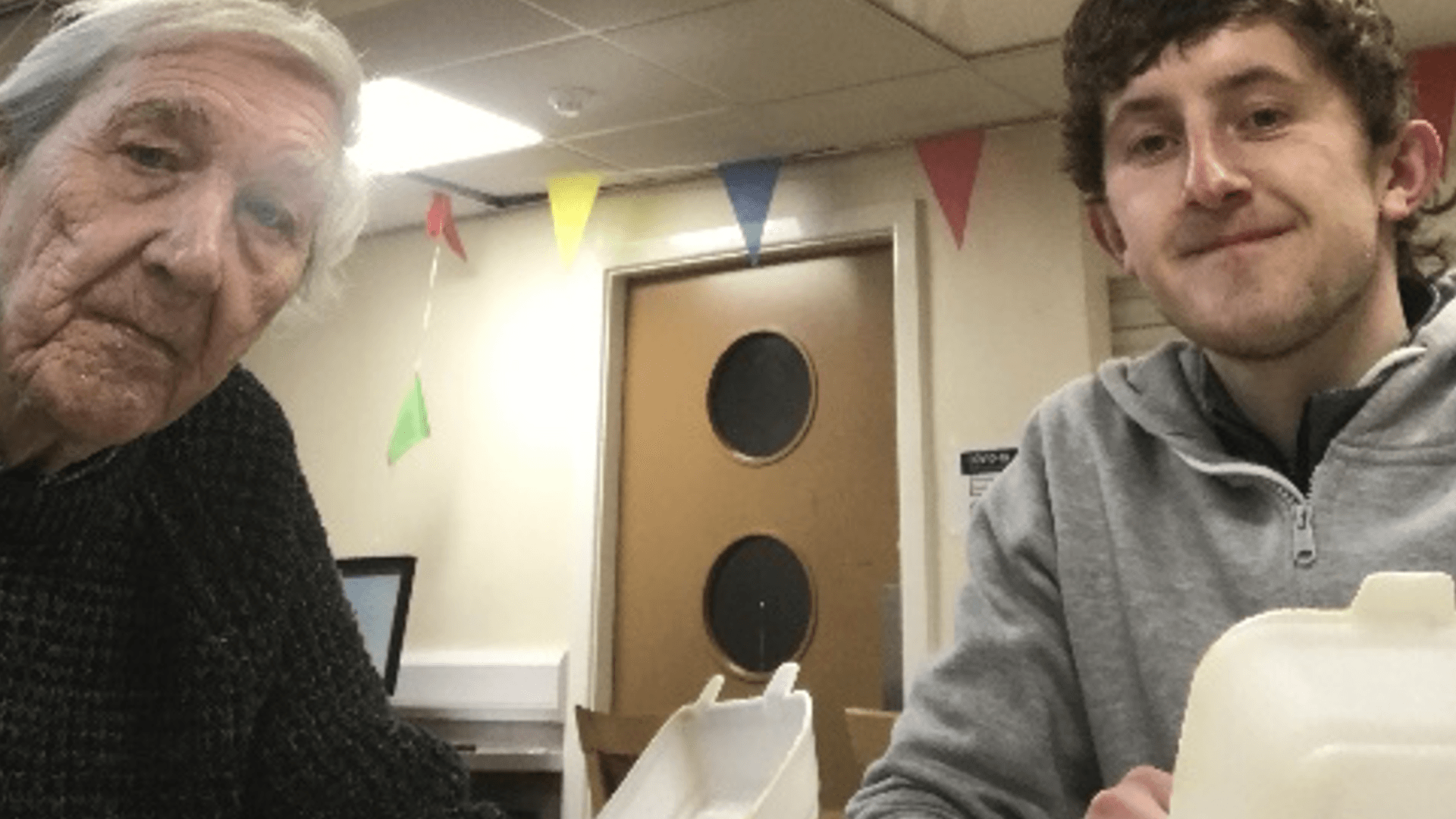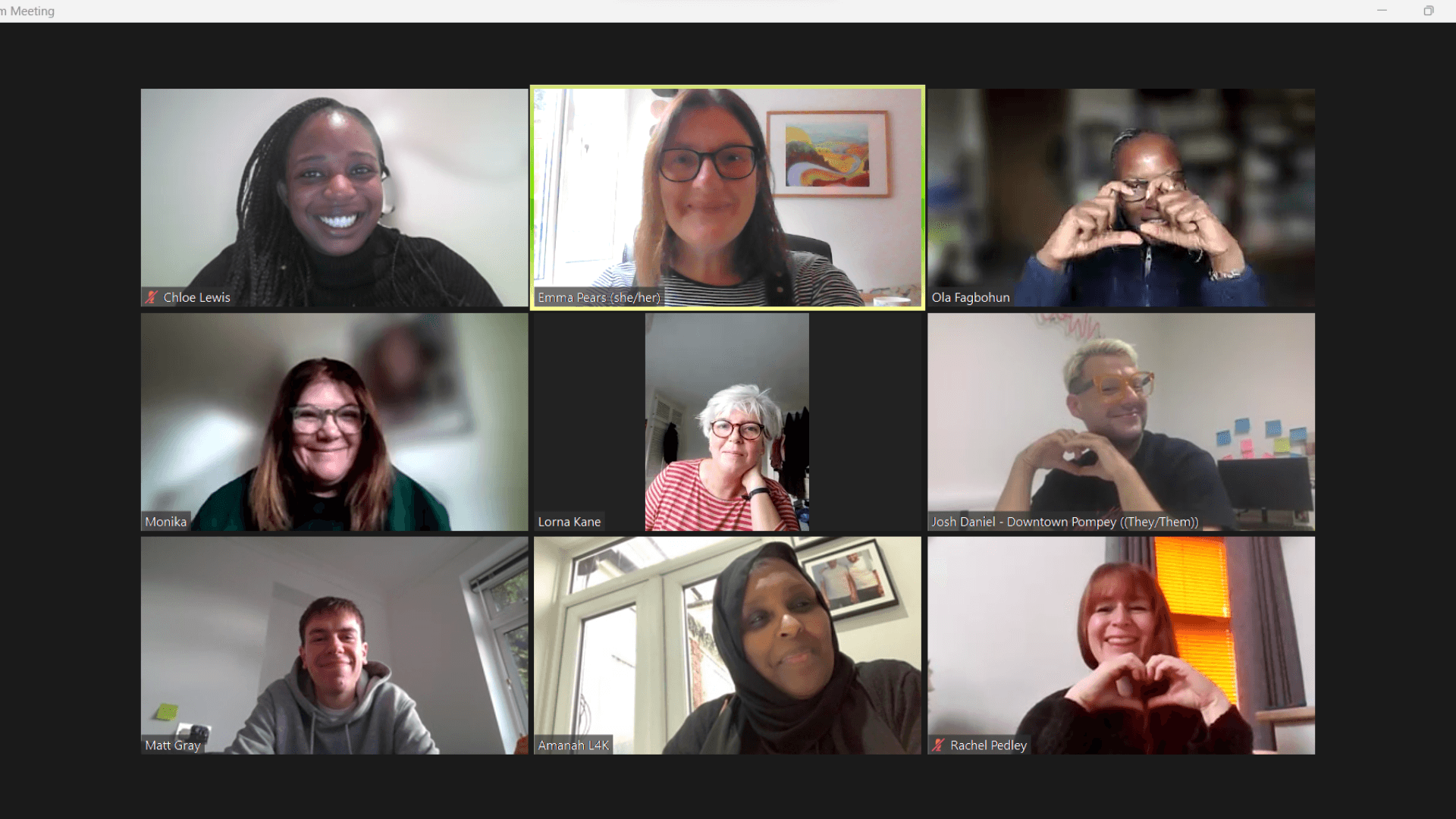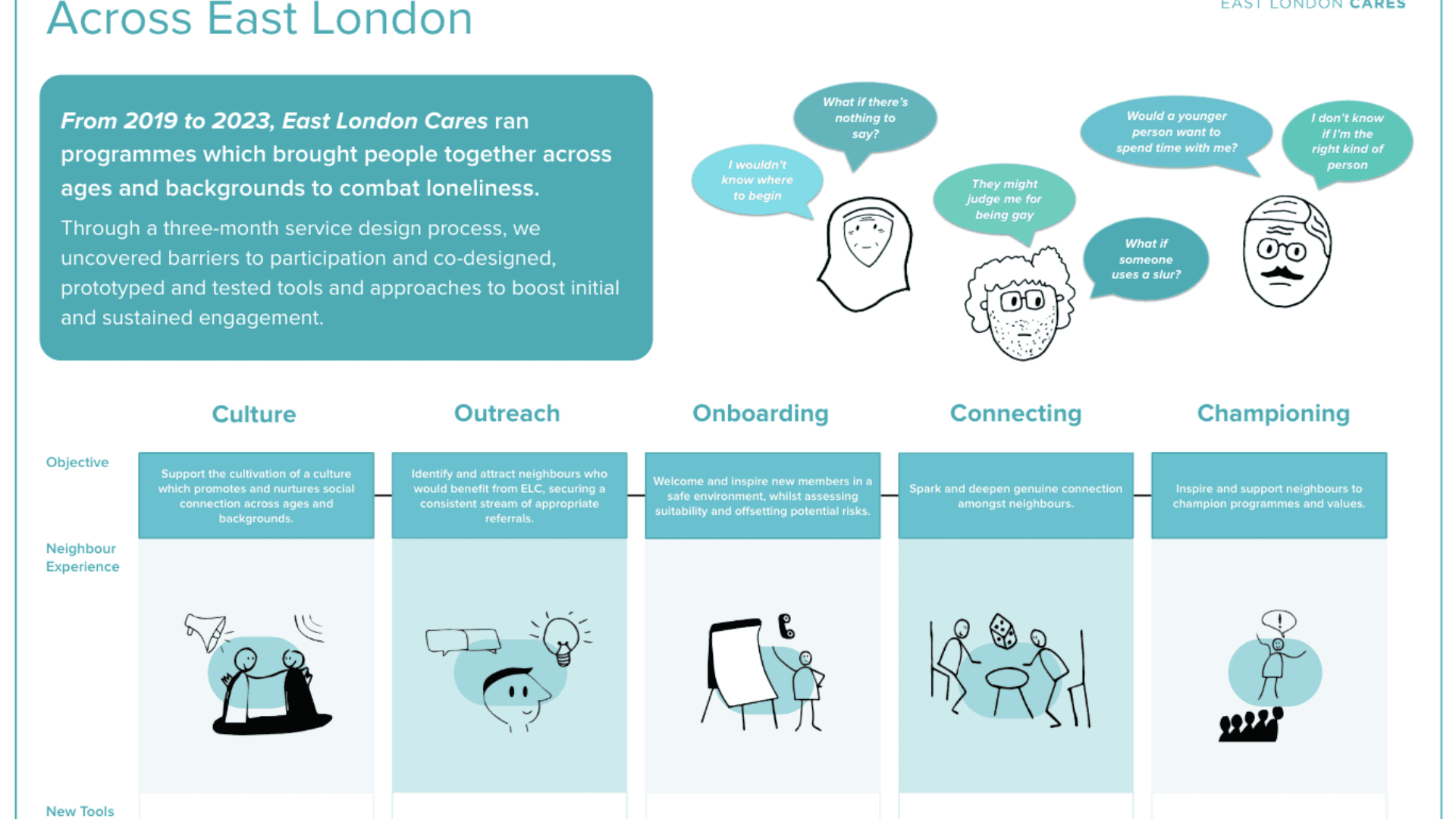
The fierce urgency of now – what we've learned in (nearly) a decade of scaling
Posted by The Cares Family on 2nd September 2020
Please note: this post is 55 months old and The Cares Family is no longer operational. This post is shared for information only
By Alex Smith
Next year, The Cares Family will celebrate its tenth birthday. We started as a small community project in north London, with no money, no plans and no supporters – but we had a strong and timely idea about the value, beauty and mutual benefit of bringing older and younger people together to build connection in a disconnecting age.
Nearly a decade on, The Cares Family has grown hugely. We've now connected 20,000 older and younger neighbours, through a group of six charities each rooted in their local place: North London Cares, South London Cares, Manchester Cares, Liverpool Cares and East London Cares.
We have a staff team across that family of 40 people, a collective budget of £2m and strong evidence about the efficacy of our work, alongside a growing profile that helps us to have a wider influence on systems and culture too. We're proud, for example, that the world's first ever government-level loneliness strategy, which we helped shape, was launched at a Cares Family social club in 2018, and that our work has been supported by Florence and the Machine, Russell Howard, Stewart Lee and Stephen Fry – and appeared on BBC News, Channel 4 News, ITV News, Sky News and in various local and national newspapers.
Amid all this change – in The Cares Family and in society itself, as first a sequence of elections and later a pandemic revealed more about the social and attitudinal gaps across generations and between different communities – we've recently taken a step back to evaluate how we've scaled to date.
In line with our values and our approach to evaluation, we didn't want this study to be a data-crunching exercise, merely analysing outputs in each of our different charities and making comparisons between them. Our job is not to count beans. Instead, we wanted this to be a human story: of the personal causes and consequences of scaling a powerful social idea; of what it takes to make an impact in an age of austerity and loneliness; and of the many moments of pain and progress, tension and even turmoil inherent in growing a community organisation from start up to grown up.
For the past year, we've therefore been working with our long-time evaluation partners, Renaisi – who understand our mission, methods and motivations as well as anyone, and who have already been with us on our journey of change – to answer the question: 'how are we scaling?'
The result is a readable, accessible narrative that charts the key milestones in our growth over the past decade, the core principles in our model and how we grew a national organisation and impact because of – and not in spite of – being rooted in local places. We're happy to publish the report to help other community organisations, funders and philanthropists to consider the strengths, weaknesses, opportunities and threats of scaling – because, as we know from hard experience, it's never as simple as it looks.
The report is worth reading in full, and its key findings are fascinating and true. The theme of the report is tension, and it identifies four key apparent dichotomies which The Cares Family holds in purposeful disequilibrium, in order to retain balance between the national and local.
- Central v Local – This is the tension that has increasingly dominated our thinking as we've scaled. We have a proudly local and bottom-up mentality, one that grew organically from the community. We have never wanted to receive government contracts to scale because we believe this is a route to values-compromise and at the whims of changing governments. We also recognise that communities have their own heritage and cultures and that these are integral to building connection. But when communities started to come to us to see whether the Cares model may work in neighbourhoods beyond our own, and when we started to attract money to explore that possibility, we felt a responsibility to grow – and, equally, to stay rooted. That's why we are registered as six local charities, each locally run by local staff teams. It's also, for the time being, why our governance is run by the same eight trustees: to make sure that we hold in tandem our responsibilities to communities, to national donors and partners and to a model that works. Over time, that's a model we will continue to adapt, to make sure that our local-national framework does what it says on the tin.
- Place v Programme – This is the tension between our core programmatic model, which is evaluated and we know works in building connection in a disconnected age, and the real differences in each local community – including health inequalities, transport links, housing types and local civic infrastructure. Over time, we've balanced this tension by allowing programmes to adapt within a standard suite, according to local needs. For example, East London Cares was the first Cares Family charity to drop the words 'young professionals' from its core language; Liverpool Cares started with a very small Love Your Neighbour one-to-one friendship programme which will only grow in earnest in 2021; and North London Cares will be the only Cares charity to continue the Winter Wellbeing project this year, due to specific local needs.
- Entrepreneurial v Structured – This is the tension between start-up and grown-up. The Cares Family started spontaneously in 2011 and was able to move quickly, respond to need and hire people of a like-mind – people who wanted to get things done, learn and progress quickly. But as an idea morphs into a small local charity, then into an organisation, and then a federation, it requires management. Volunteers, staff, trustees and partners' expectations and accountabilities shift, and people become involved for a multitude of different reasons that all need holding at once. Or, as I comment in the report: "I want to hold an organisation in the sweet spot of disequilibrium – where no one gets complacent because we haven’t solved this deep social disconnection yet, where people come to work because they want to change the world, but also where people’s lives are not dominated by the difficulties we face every day because of the type of work we do.”
- Informality v Accountability – An organisation needs to live its values in the delivery of its core work and in its internal operations, and as Iona Lawrence wrote earlier this year, 'community is written into The Cares Family's culture.' That means, as professional processes are put in place, the Brene Brown mantra 'Clarity is kind' becomes ever more important. Yes, we need close and human and compassionate relationships between people involved in these communities. But we also need boundaries, processes and accountabilities with our neighbours, staff and partners.
While each of these tensions is highlighted in the report through the term 'versus', the study notes that neither side of the coin is considered 'a positive or a negative':
"Instead, each lesson of scaling can be seen as a polarity for the charity to manage rather than a binary to choose between. In particular, it is noted that all the experiences listed are subjective, and the experience of The Cares Family’s collective growth has been to hold these multiple subjectivities and the ambiguities between them at once."
Our experience of scaling has been unique, because our model is unique. It was not created by a cookie-cutter, or management consultants or charity consultants who applied a framework. It was not designed in workshops with Sharpies and little post-it stickies. It was designed by people with passion in communities – and, happily, communities are complex. So here are some other lessons from The Cares Family's scaling over the past nine years, building on the learning in the report:
- Scaling is hard. The decision to grow a community project should not be taken lightly. It comes with huge potential for social impact for many, but many sacrifices and huge human cost for the small group of people at the centre of it – people who need to be totally believing in and committed to their mission. It can be isolating, infuriating, painful and exhausting – and it can have an impact on personal and professional relationships which need care and dutiful attention.
- Scaling can happen by accident, by design – or both. Just because you're not set up to scale, doesn't mean you can't. For The Cares Family, we grew organically before we grew strategically. This meant we were building the car as we were driving it, and we're still catching up today with operational developments that others might have prioritised sooner (and in doing so missed their true purpose). However, if you keep listening and learning as core principles, it is possible to scale a model across geographies and to focus on local community at the same time, and the demand for planning should never hold back the urgency of social change.
- You may have developed a strong social change mechanism, but it's not yours to keep: it belongs to the community. That means that listening to the people for whom your model is set up is always key. It's more important than listening to funders. It's more important than listening to staff (though your staff are fundamental – see below). And it means leadership needs constantly to have the hunger to learn and the humility to un-learn as the world moves at breakneck speed.
- Your team are the eyes and ears to that community. They should be trusted to be autonomous, but also supported to navigate deep challenges. Their personal sacrifice should be recognised and celebrated. In many moments over the past five years, The Cares Family has not struck that right balance on the spectrum between enterprise and management, challenge and celebration. But what we have always done is believe in distributed and adaptive leadership: the belief that our team and our community have the answers to their challenges and can be nurtured to find those solutions.
- Impact eats strategy for breakfast. If you're confident in the positive impact you're having in people's lives (and can evidence it), you should spend as little time as possible in strategy workshops and as much as you can building, testing, honing and improving your model through an 'action first' approach. That's how a model adapts with people. At The Cares Family, we didn't follow a framework for scaling. We followed our noses, our principles and our neighbours instead. We looked at the places that were changing fastest in the UK, established that they too were experiencing the UK's deepest loneliness across generational divides, and built the partnerships to start making a difference quickly. That had its drawbacks, and we learned that each new charity needs two to three months of partnership building before programmes begin (which can be frustrating to funders). But it remains the purpose of our work: to make a difference in the lives of people in community, and not to allow the bureaucracy of meetings to get in the way.
- You can adapt your approach but not your founding principles. The Cares Family is a bottom-up community organisation. We never intended to be anything else. That's why over 90% of our funding comes from non-governmental sources – so that we can stay free to be a community, rather than a service or an outsourced council initiative. Retaining that bottom-up approach has been tricky as we've scaled, especially with income into the centre specifically for that scaling. But our operating principles have always remained solid: we build mutual relationships, rooted in the heritage, healing and hope of local places, by proactively bringing people together to share experiences. For The Cares Family, those are three simple principles which have never changed.
- Move quickly, and slow down too. While The Cares Family has scaled quickly, we've rarely stopped to reflect. While we've been constantly learning, we've rarely paused to apply that learning for the long term. That has led to challenging internal legacy systems and cultures which we're only now correcting. It's also led to teams feeling occasionally out of control, and overwhelmed by decision fatigue. So organisations should leave space for reflection in every year of change. The process doesn't have to take long – a week of reflection can lead to a year of innovation – but is does have to go deep.
- Burnout is both real and imagined. A word common in Renaisi's evaluation is 'burnout'. People who work at The Cares Family are compassionate, dedicated, committed individuals who believe in a vision and are determined to make it work. That passion comes at a human cost, and individuals have felt the exhaustion of scaling for social change in an age of loneliness. We've shared our experience of burnout, and indeed burn-in before. But there are things you can do to nudge burnout culture in the right direction through operational changes and to prevent it becoming endemic: insist people take breaks by creating a 'use it or lose it' system for holiday and TOIL; model self-care and community care from the top (I'm still learning about this); develop an emotionally diverse team; and focus energies on how to overcome challenges rather than the challenges themselves, on the power you do have, rather than the power you don't.
- Our greatest irony is that scaling is lonely. Each of our charities has had a little more investment than the last to get off the ground, and more time to build in financial and operational sustainability. But each has necessarily also started with one person at the core. In each of our locations, programmes are often still overseen by one person, run by one another (a maximum of two), and directed nationally by just one more. First hires in each location have felt their own loneliness, as have our leadership who have spend so much time on the road, in cheap hotels, trying to find people and partnerships get things started. So you've got to foster community, in your internal culture as well as in your core work.
- Be more pirate. Our world is fragmenting because it is lonely. And it is lonely because some big systems, processes, businesses and cultures are making it that way. These oppressive systems cannot stand. So, borrowing from Sam Conniff's philosophy, scaling organisations need to: break rules (including their own), rewrite the rules (including in public policy); re-organise (building new power through networks, federations and franchises; redistribute power (through distributed and adaptive leadership and nurturing strong voices who collaborate with one another); re-tell (build a narrative without relying on the power of a single story).
These are lessons that we at The Cares Family are proud to have learned the hard way. And as we look to the future, we're excited about sharing them with more communities around the country – not just through our existing model, but through our new Action, Voice, Power strategy and our brand new Multiplier programme, which will seek to support 50 leaders to bring people together in their own communities in their own ways, over the next five years. We're grateful to Renaisi for helping us to see that future. And we're grateful to the 18,000 older and younger neighbours who have inspired this mission over the last nine years – and will continue to do so long into the future.


